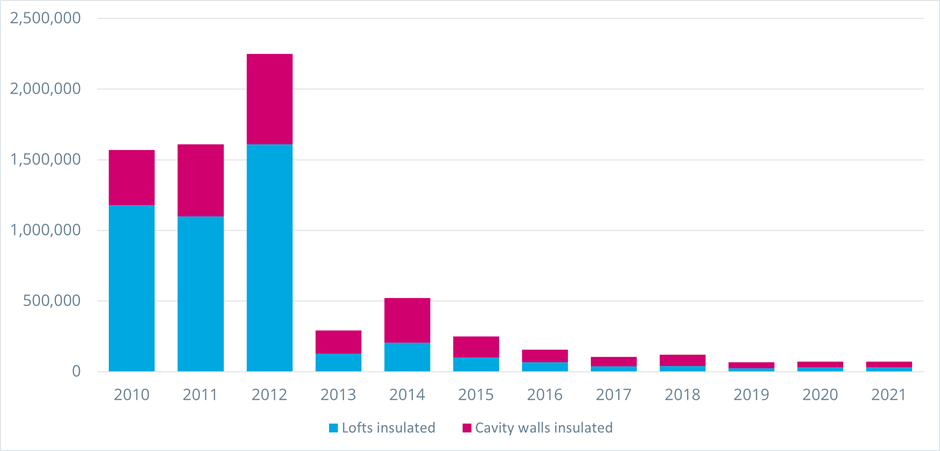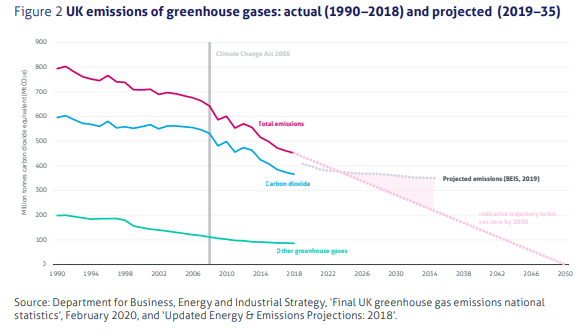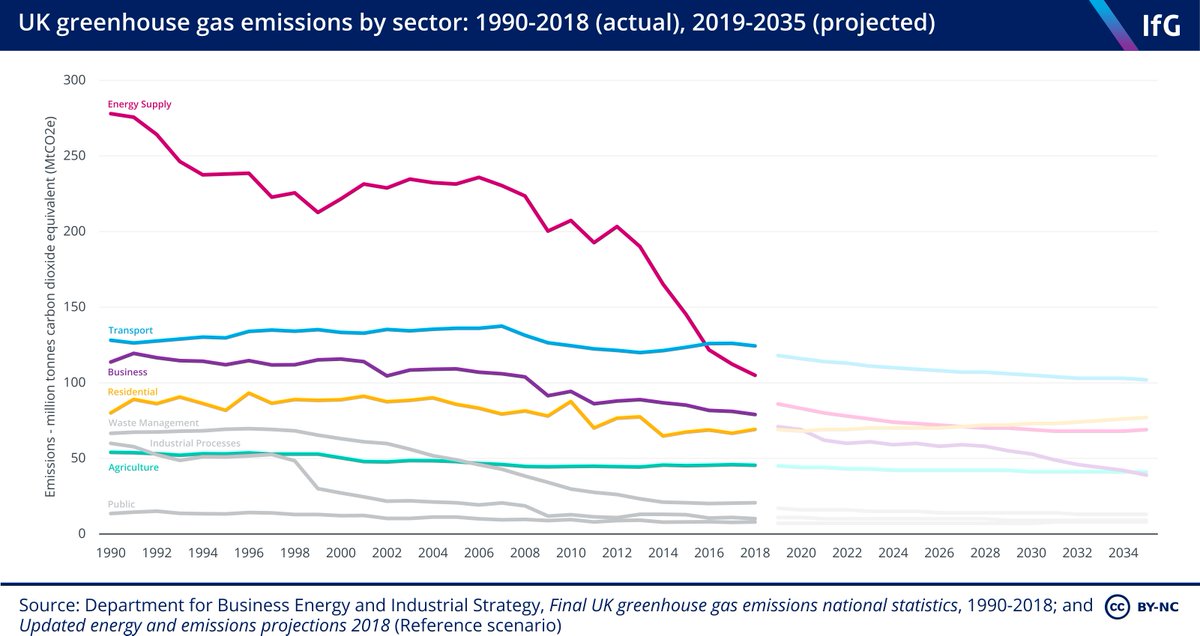
On missing energy efficiency in the #energysecuritystrategy and HMT ostrich-ism
Here is what's happened in the UK over the last decade. UK has some of draughtiest and least efficient housing stock in Europe
Here is what's happened in the UK over the last decade. UK has some of draughtiest and least efficient housing stock in Europe

Here is what @theCCCuk said about heat & buildings strat in Oct: “the lack of an integrated offer on home retrofit for the majority of households remains a real source of concern”
CCC and others have made the comparison with Germany - where a decades long scheme backed by the German national development bank KFW has led to very high deployment rates, grown mkt, brought down costs, and now *pays for itself*
Fine if the UK wants to take a different route, and £200m per year may not have been transformative
But HMT shouldn't pretend that UK continuing to have *no plan* on this doesn't seriously undermine objectives of any credible energy strategy
But HMT shouldn't pretend that UK continuing to have *no plan* on this doesn't seriously undermine objectives of any credible energy strategy
• • •
Missing some Tweet in this thread? You can try to
force a refresh







